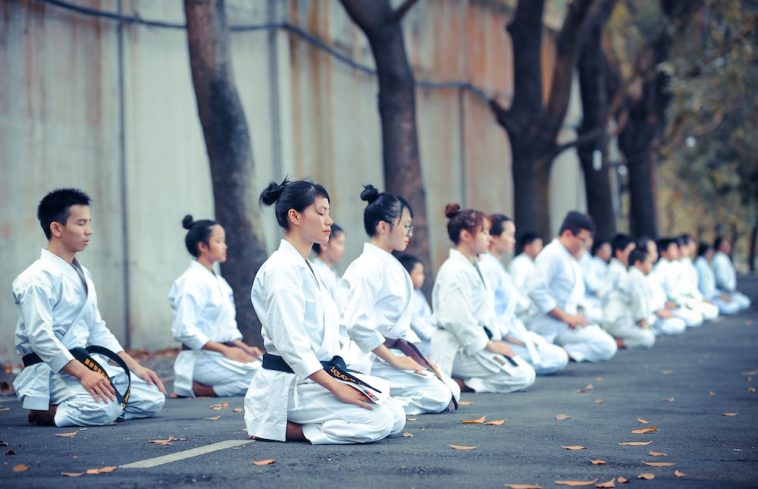Introduction.
Self-discipline is like a superpower. It’s the ability to push through challenges, stay focused, and keep going even when you don’t feel like it.
Whether it’s sticking to a workout routine, saving money, or pursuing a passion, self-discipline is what keeps you on track.
But let’s be real—it’s not easy. Many of us struggle with distractions, procrastination, and just plain old lack of motivation.
So, why does self-discipline matter? It’s not just about ticking off goals or looking productive. It’s about building a life that aligns with your values and aspirations.
When you practice self-discipline, you’re essentially saying, “I’m in charge of my choices, not my impulses.” And that mindset can change everything.
Let’s unpack what self-discipline really is, why it’s so hard to master, and how you can get better at it. Stick with me—I promise this will be worth it.
What is Self-Discipline?
Self-discipline is the ability to control your behavior, emotions, and thoughts to achieve a specific goal. It’s what helps you delay gratification and make decisions that benefit you in the long run.
For example, skipping a late-night Netflix binge to get a full eight hours of sleep requires self-discipline.
But it’s not just about saying no to things. It’s also about saying yes to the right ones. Like sticking to your morning run even when your bed feels like the coziest place on earth.
Why Is Self-Discipline So Hard?
Let’s face it—our brains love shortcuts. Instant gratification feels good, and it’s hardwired into us. Watching funny videos, eating that extra slice of pizza, or hitting snooze feels great in the moment. But these habits can pull us away from our goals.
On top of that, willpower is like a battery. It runs out the more you use it. By the end of a long day, your ability to resist temptation might be way lower than it was in the morning. That’s why it’s so easy to break resolutions when you’re tired or stressed.
How Do I Build More Self-Discipline?
Here’s the good news: self-discipline isn’t something you’re born with. It’s a skill, and like any skill, you can get better at it with practice.
1. Start Small
Big changes can be overwhelming. Instead of overhauling your entire routine, pick one area to focus on. Want to exercise more? Start with a 10-minute walk each day. Over time, you can build up to longer workouts.
2. Set Clear Goals
Vague goals lead to vague results. Instead of saying, “I want to save money,” try, “I’ll save $50 from each paycheck for three months.” When your goals are specific, it’s easier to track your progress.
3. Create a Routine
Habits thrive on routine. If you want to write every day, pick a consistent time and stick to it. Over time, it’ll become second nature.
4. Limit Distractions
Let’s be honest—our phones are one of the biggest distractions. Turning off notifications or setting your phone to “Do Not Disturb” can help you stay focused. If social media is your kryptonite, try apps like Freedom or Forest to block it during work hours.
5. Use Positive Reinforcement
Celebrate your wins, no matter how small. Completed a week of workouts? Treat yourself to a relaxing bath or your favourite snack. Rewards can help motivate you to keep going.
6. Learn to Say No
This one’s tough but necessary. Sometimes, you need to say no to things (or people) that drain your time and energy. Remember, every “no” to a distraction is a “yes” to your goals.
7. Practice Self-Compassion
Slip-ups happen. Maybe you skipped a workout or spent more than you intended. Don’t beat yourself up. Acknowledge it, learn from it, and move on. What matters is consistency, not perfection.
FAQs
1. Can self-discipline really be learned?
Absolutely! It’s like building a muscle. The more you practice, the stronger it gets.
2. How long does it take to build a habit?
On average, it takes about 66 days to form a habit, according to a study published in the European Journal of Social Psychology. But this can vary depending on the person and the habit.
3. What if I’m naturally lazy?
No one is “naturally lazy.” It’s often a sign of burnout, lack of motivation, or unclear goals. Start small, focus on one step at a time, and build from there.
4. How do I stay disciplined when I’m not motivated?
Motivation comes and goes, but discipline is about doing the work anyway. Create systems, like setting reminders or preparing for tasks in advance, to make it easier to follow through.
5. Can too much self-discipline be harmful?
Yes! If you’re too rigid, you risk burnout or missing out on spontaneous joys. Balance is key—allow yourself breaks and flexibility when needed.
Conclusion
Building self-discipline isn’t about being perfect. It’s about making intentional choices that align with your goals. It’s a process, and it takes time, patience, and effort. But with the right mindset and strategies, it’s 100% achievable.
So, here’s a question to think about: What’s one small step you can take today to become more self-disciplined?





GIPHY App Key not set. Please check settings